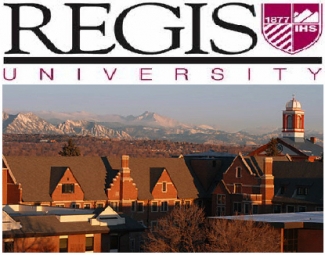 Malawian and African nurses planning to emigrate to the United Kingdom (UK) to secure jobs with better working conditions than in their countries risk being discriminated and failing to secure employment. According to a recent research, there has been a sharp decline in the number of nurses from poor developing countries including Malawi and Africa migrating to the UK widely attributed to UK Immigration, tougher immigration controls on overseas nurses.
Malawian and African nurses planning to emigrate to the United Kingdom (UK) to secure jobs with better working conditions than in their countries risk being discriminated and failing to secure employment. According to a recent research, there has been a sharp decline in the number of nurses from poor developing countries including Malawi and Africa migrating to the UK widely attributed to UK Immigration, tougher immigration controls on overseas nurses.
Nurse
However, some researchers reveal that foreign nurses are shunning the UK due to some forms of discrimination against foreign nurses.
“It’s more difficult for Malawian doctors to emigrate to the UK now, as the immigration rules changed a few years ago,” Kate Mandeville from Charity Medic to Medic in the UK told the BBC recently specifically commenting on Malawi which has for many years been exporting nurses to its former colony.
She added: “But anecdotally some are migrating to other African countries like
Botswana and Lesotho, which offer higher wages.”
Mandeville further explained that fortunately in Malawi the College of Medicine is doing a fantastic job.
“The College of Medicine is producing many more doctors than before, so hopefully the situation will improve in the future,” she said.
The study found that there was a significant decline in the number of internationally trained nurses immigrating to the UK over the last decade.
Before 2005, 10,000-16,000 nurses were immigrating to the UK each year from foreign countries, but following the changes in 2005 the numbers decreased to 2,000-2,500 foreign nurses arriving in the UK each year.
However, some researchers’ findings filed to UK Immigration claim that “Some nurses felt aggrieved that the doors of the UK that had previously been open to them, were now closed,” adding that foreign nurses perceived the tightening up of UK regulations as “discriminatory”.
In Malawi, at whatever costs, patients and guardians expect nurses and health workers in general to treat and care for the sick with empathy since before preparing to begin caring for the sick they first take a vow pledging to respect the dignity of every patient and general service of humanity.
The Executive Director for National Organization of Nurses and Midwives in Malawi (NONM) [also a union for nurses, midwives and health workers in Malawi] Dorothy Ngoma, however said nurses are not supernatural.
According to Ngoma just like all human beings, nurses and health workers in general need time to do their job (care for patients) but also rest, live comfortably with dignity themselves if they have to sustain their lives and do their work professionally and ethically.
“For example, four or five nurses taking care of say 200 or 300 very sick patients for 24 hours a day without rest and meeting very little support, that in itself is a form of abuse of nurses,” said Ngoma adding that the practice even compromises the quality of treatment rendered to patients.
“Abusing nurses is not just beating or talking abusively to them as some patients and guardians have been doing in this country but also stressing them with unlimited work pressure without giving them time to rest,” said Ngoma.
Malawi Health Equity Network (MEHN) National Coordinator Martha Kwataine said her organization commissioned a survey which revealed that among other things, health workers including nurses/midwives in the country get ill-treated psychologically, physically and other forms including overworking without resting especially in public hospitals.
“In return, the quality of health delivery services provided by nurses and health workers in general in the country is compromised and in some cases even puts patients and clients in danger,” said Kwataine.
Medical practitioner Edgar Lungu said some nurses have answered accountably to have treated patients or clients poorly due to overworking.
“The nurses explain the unfortunate treatment towards patients and clients is a result of too much work pressure and impatience of patients and clients,” said Lungu.
He disclosed that staffing shortage in public hospitals is a critical issue because instead of the ideal nurse to patient ratio of 1 to 10, practically each nurse is in admission wards is overwhelemed by the number of patients in Malawi’s public hospitals.
“This implies that a nurse works five times as much,” said Lungu.
Kamuzu College of Nursing (KCN) Principal Address Malata said Malawi has just about 9,000 nurses, cannot afford to lose any of them.
“The country has already inadequate number of nurses hence overwhelmed by the demand of services needed by Malawians in public hospitals,” she said adding that therefore, “there is an urgent need for us as a country to recruit more nurses, return those that had left the public health system for other greener pastures and motivate them at work to improve the country’s health service delivery.”

.jpeg&w=60&q=100&h=60)




.jpeg&w=60&q=100&h=60)





